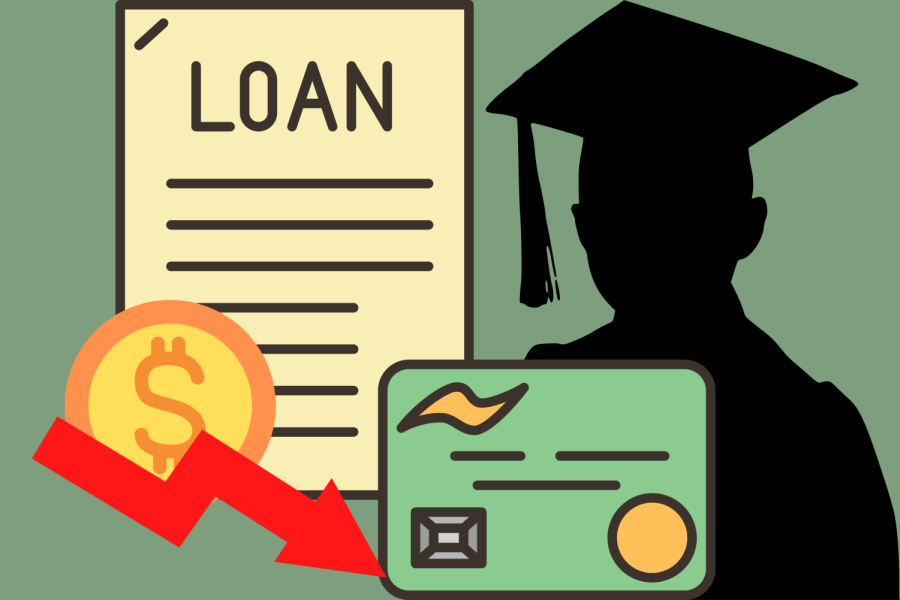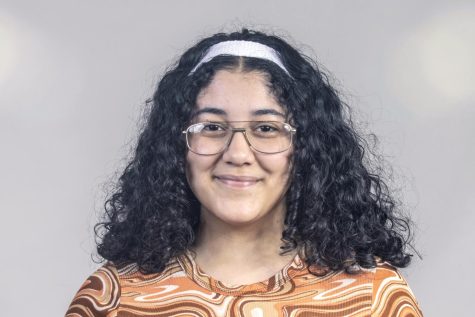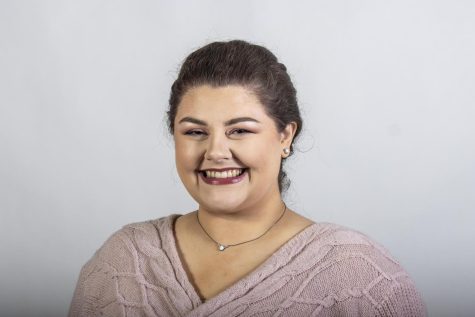Students share thoughts on student loans, debt forgiveness
August 25, 2022
On Wednesday, President Joe Biden, Vice President Kamala Harris and the U.S. Department of Education announced a three-part plan to address student loan debt. This plan includes student loan relief for federal student loan borrowers.
This plan was created to help people in the United States as they continue to cope with the financial struggles associated with the COVID-19 pandemic. It was also created to “address the burden of growing college costs and make the student loan system more manageable for working families,” according to a statement from the White House.
Some college students think student loans are helpful in funding one’s college education.
Abraham Ortiz, a sophomore television and video production student, said student loans are helpful for those who do not have easy access to scholarships and grants.
“If you just simply aren’t able to obtain those scholarships and grant money, then they’re an easy second option, a backup plan to go to college and get the education that you need,” Ortiz said.
Not all Eastern students feel the same way, with some disliking student loans. Cameron Clark, a junior history student, is one such student.
“I don’t like them,” Clark said. “I find they’re somewhat predatory.”
Sean Haynes, a senior music education student, said he feels they are “sort of a trap.”
“If you ever have to do it, due to the way that it inflates over time, even with teacher forgiveness in the future, you’re kind of always paying it off until you die,” Haynes said. “Even one of my professors earlier was talking about how she might finally be able to pay off all of her student loans, thanks to what Biden is doing now.”
Through this plan, the U.S. Department of Education will provide up to $20,000 in debt cancellation to borrowers who received Pell Grants and up to $10,000 to those who did not receive Pell Grants.
Borrowers who are eligible for debt cancellation are individuals who make less than $125,000 per year and married couples or heads of households that make less than $250,000 per year.
Ortiz said he thinks these plans will be helpful for borrowers such as himself.
“It would help me so much because it would take care of most of [my loans], and I won’t have to worry so much about my parents helping me pay off the loans in the future,” Ortiz said. “I think it’s just a big relief for everyone.”
Some Eastern students think these qualifications for student loan forgiveness are too limiting.
Yolanda Botello, a senior special education student, thinks “it’s a great plan” but finds it “unfair for those that don’t receive the Pell Grant can’t receive that forgiveness.”
“I’d say just forgive regardless of their income, just because it’s already hard as it is,” Botello said.
Amel Kohli, a sophomore biological sciences student, said that she hopes further plans will be made that can benefit borrowers and that there’s “no unequal or unfair treatment.”
“I think that it’s fair that he’s giving that back to the students and to people in general, but at the other part, there’s some people that maybe do not fall under that spectrum,” Kohli said.
The plan also includes a final extension of the student loan repayment pause through Dec. 31 with payments resuming in January 2023.
With this plan, the Biden-Harris administration is also “proposing a rule to create a new income-driven repayment plan that will substantially reduce future monthly payments for lower- and middle-income borrowers,” according to Federal Student Aid.
Kenny Warner, a freshman undecided major, said these plans would be beneficial to borrowers.
“It seems like it could really help some people in need, and I feel like it could be beneficial and kind of take that heavy load off after you are graduated from college,” Warner said. “You could be paying back loans for a long time, so I think that helps a lot of people out, and I think in this day and age, for how expensive college is, I think a lot of people would be thankful.”
Clark said that these plans are not enough to address student loan debt.
“I feel that they are just a drop in the bucket,” Clark said. “It’s not going to be enough money, and it doesn’t fix the underlying issue. I think that this is mostly just a grab for votes in the upcoming midterms.”
Some students said they hope these plans will be the start of more actions that will benefit borrowers and college students.
“I definitely hope that hopefully, all student loans will be forgiven, and that eventually sometime down the line, that we would have free education for all people,” Haynes said.
Kyara Morales-Rodriguez can be reached at 581-2812 or [email protected].





















































